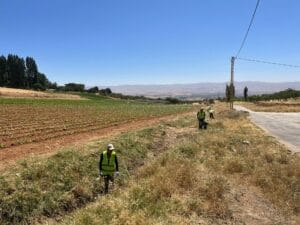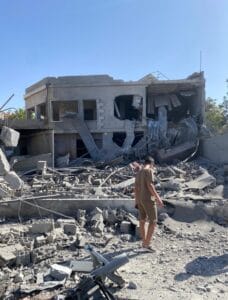
Since 2006, WeWorld in Lebanon has actively worked with multiple local and international partners to advance localisation efforts within the humanitarian and development sectors. In 2024 alone, we have collaborated with over 12 local organizations, integrating localisation components into all projects funded by the Lebanon Humanitarian Fund (LHF). These efforts have focused on strengthening local actors’ capacities, amplifying their voices, and fostering peer-to-peer learning to create a more inclusive and sustainable humanitarian response.
Recognizing the impact of these initiatives, in Lebanon we have taken a significant step forward: consolidating our experience into a dedicated localisation project. Funded by the LHF, the project "Localisation and Learning: Building Local Actors' Capacity for a More Accountable and Effective Humanitarian Response" is being implemented between August 2024 and July 2025.
A structured approach to Localisation
Building upon previous LHF-funded interventions, the project directly supports national NGOs and other local actors in enhancing their technical and operational capacities, while also promoting opportunities for knowledge sharing, platforms for discussions, and peer-to-peer learning. The project is aligned with the LHF Localisation Strategy and the 2024-2025 PSEA Strategy in Lebanon, addressing key gaps in operational management, Protection from Sexual Exploitation and Abuse (PSEA), and Accountability to Affected Populations.
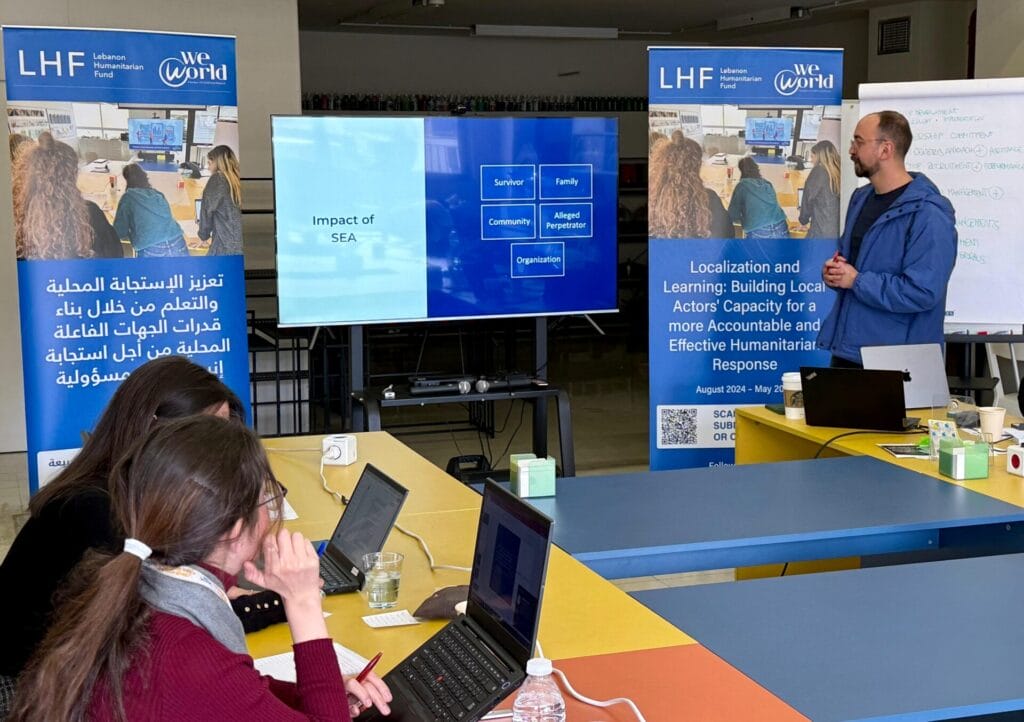
The project entails the following activities:
- Tailored training for National NGOs: 5 national NGOs are currently participating in a comprehensive training program delivered by our staff in Lebanon. Over 8 interactive sessions, participants are gaining essential skills in Monitoring, Evaluation, Accountability, and Learning (MEAL), PSEA, and other operation management topics including safety, security, and procurement. To ensure they can put this knowledge into action, they are also receiving personalized post-training support.
- Strengthening PSEA capacities: Safeguarding communities is a top priority for all humanitarian actors. In partnership with the PSEA Network in Lebanon, we are carrying out training sessions for 50 PSEA Focal Points from national and international NGOs. By the end of the project, these focal points will be equipped to provide cascade training to their colleagues, enhancing and expanding protection measures against Sexual Exploitation and Abuse.
- Developing practical PSEA tools: To help organizations strengthen their PSEA systems, we are working alongside the PSEA Network to develop customized tools and resources, which will be available in English and Arabic for greater accessibility and practical implementation across diverse humanitarian contexts. The project foresees the dissemination of these materials, ensuring wider reach and audience.
- Encouraging peer-to-peer learning: sharing knowledge is key to a stronger and more connected humanitarian community. To promote continuous learning, we are planning to host two thematic roundtables, bringing together national organizations, MEAL experts, and AAP/PSEA specialists. These sessions will provide a space for discussion, experience-sharing, and the exchange of best practices concerning critical activities and approaches.
- Tracking progress and ensuring long-term impact: To make sure these efforts lead to lasting improvements, we will implement a solid MEAL system that assesses knowledge retention, skill application, and overall program impact. This is ensured through the administration of Knowledge, Attitudes and Practices (KAP) Surveys, follow-up sessions, satisfaction surveys and thorough coordination with the NGOs engaged.
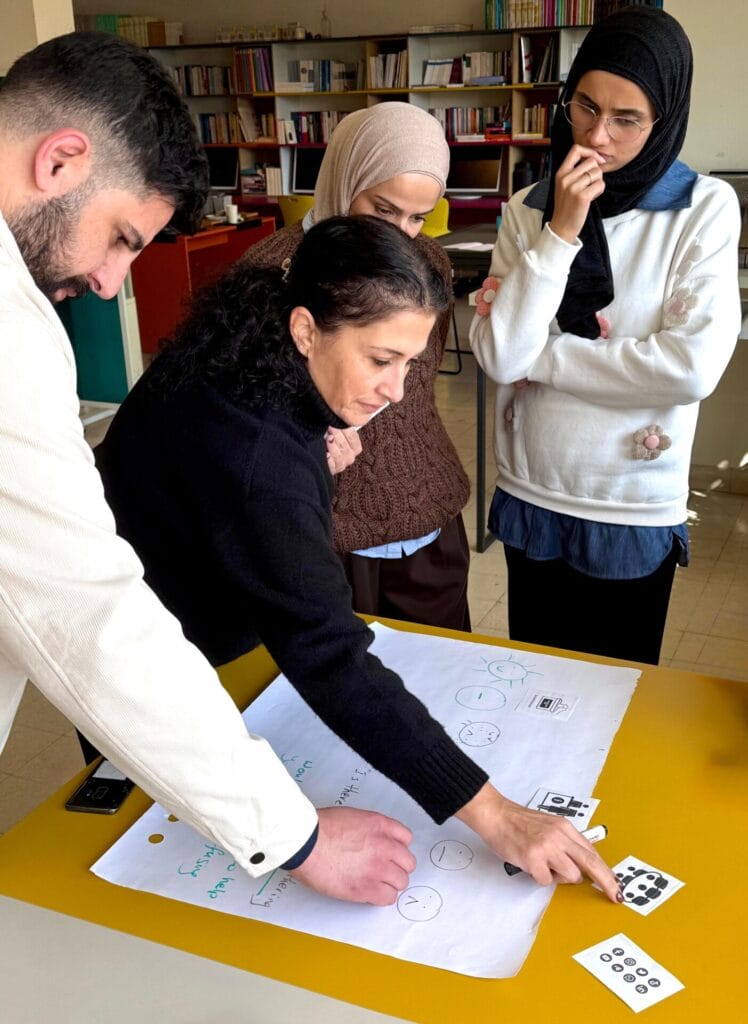
By the end of the project, at least 215 practitioners within Lebanon’s humanitarian community will have benefited from these initiatives, reinforcing the Grand Bargain commitment to making humanitarian action "as local as possible and as international as necessary”.
A commitment to sustainable Localisation
Localisation is not just about capacity-building: it is about ensuring local actors have the resources, space, and recognition to lead humanitarian responses effectively. As one WeWorld’s strategic pillars, localisation is central to its mission of fostering a more inclusive and sustainable humanitarian system, based on the recognition of local NGOs' role as first respondents to emergencies alongside communities and as leading actors of local development. Taking the added value of partnerships with local actors seriously, efforts towards localisation contribute to strengthening collaboration between local NGOs and key stakeholders on the ground, ultimately promoting fruitful and positive coordination sustaining future interventions.
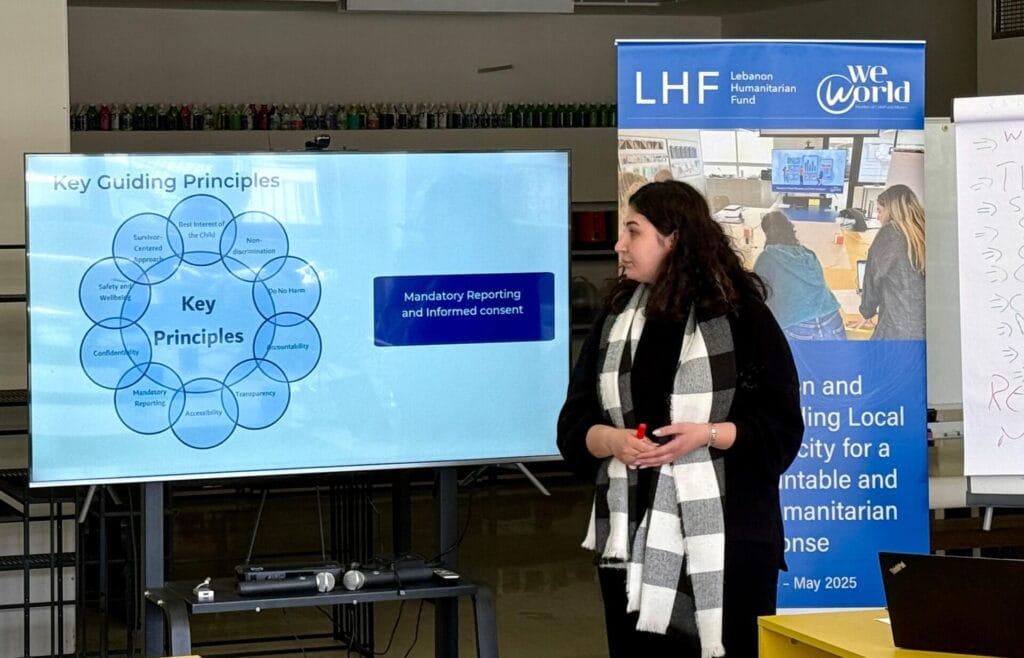
Through extensive coordination with existing Inter-Agency structures, the PSEA Network, and thematic sectors, and tens of National and International NGOs, we are paving the way for locally driven humanitarian action in Lebanon. By investing in local actors today, we are shaping a more resilient and self-sustaining humanitarian response for the future, because at WeWorld, changing the world is a team effort!


